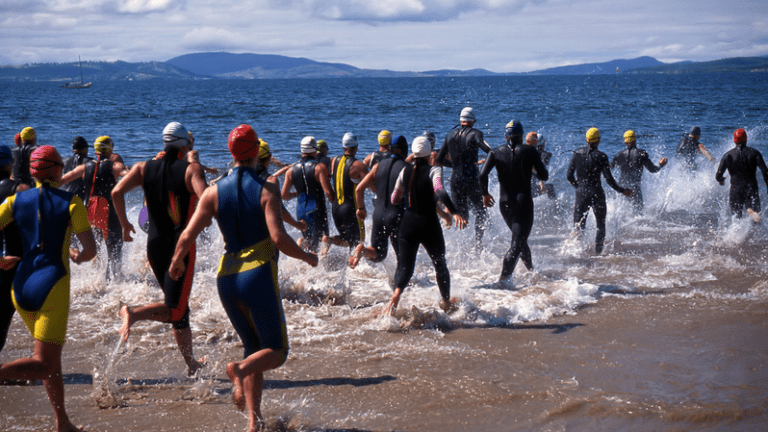Looking to become a triathlete? Here are a few tips to help you prepare.
Every veteran triathlete was a bright-eyed beginner at one point. Many of them probably even had the same experience with their first race – gruelling, exhausting workouts, fear and uncertainty about their capabilities, confusion about how and when to train. But just because they dealt with all that stuff, doesn’t mean you have to.
What a lot of people forget about running a triathlon is that it’s actually a lot like any other pursuit – what I mean to say is that it’s as much about what you know as it is what you can do. To that end, the more research you do ahead of time, the easier you’ll find the race when you eventually get there.
Here, in my experience, is some of the most valuable advice I can give.
1. Planning Your Workouts
Pick a set time every day to do your training – but remember that you don’t need to train for hours at a time. You can actually make a lot of progress with just a half hour to an hour of effort, provided you train effectively. That said, you should keep your workouts diverse and flexible, as well.
For example, if it’s raining, you might consider going for a swim or doing cross-training instead of running or biking.
Another important piece of advice is to figure out which part of the triathlon is your weakest. Some people are naturally gifted swimmers, but can’t bike to save their lives. Other people are great runners, but useless in the water.
Choose the discipline that’s the most challenging for you, and focus on training that up more than the others.
2. What To Eat – and When
No matter how much you train, if you aren’t eating properly, you’re not going to see many gains. Eat a lot of chicken, yams, potatoes, and vegetables in the days and weeks leading up to the triathlon. And I mean a lot. You’re going to need a ton of carbs to give you energy, and a ton of protein to help you build up muscle.
3. How To Keep Things Simple
If you were a novice programmer, you wouldn’t look at how a veteran works and try to imitate them directly. If you were new to driving, you wouldn’t try to emulate the tricks of a professional stunt driver. In the same way, novice triathletes should not try to copy the training methods of veterans.
Keep things simple. Find what works for you, and stick to it.
You don’t need to spend a mint on complex training gear, spend hours mastering intensive training methods, or spend days figuring out the perfect combination of supplements. For now, just train.
4. Breaking Your Mental Barriers
The biggest challenge in an activity as grueling as triathlon isn’t your body – it’s your mind. Eventually, you’re going to hit what athletes call the wall. You’re going to feel like you’re completely out of energy; you’re going to feel as though you’ve exhausted yourself and can’t keep going.
The trick to success is to convince yourself that no, you can keep pushing forward.
Meditate for 20 minutes a day. When you’re working out, listen to music that energizes and pumps you up. Be sure to also visualize yourself crossing the finish line – and the cheers of your family and friends as you do so.
5. Bricking
Last but certainly not least, let’s talk about something known as bricking. This technique involves training two disciplines back to back – cycling and sprinting, for example. This is one of the most important training routines you’ll have to master in preparation for your triathlon, as the muscle changeover between different legs of the event is one of the biggest challenges you’ll face.
CoachUp is the safest and easiest way to find a coach for personalized training. With our 100% money-back guarantee and vetted coaches, anyone can achieve their full athletic potential. Find your perfect coach today and become the athlete you want to be!
How useful was this post?
Click on a star to rate it!
Average rating 0 / 5. Vote count: 0
No votes so far! Be the first to rate this post.




